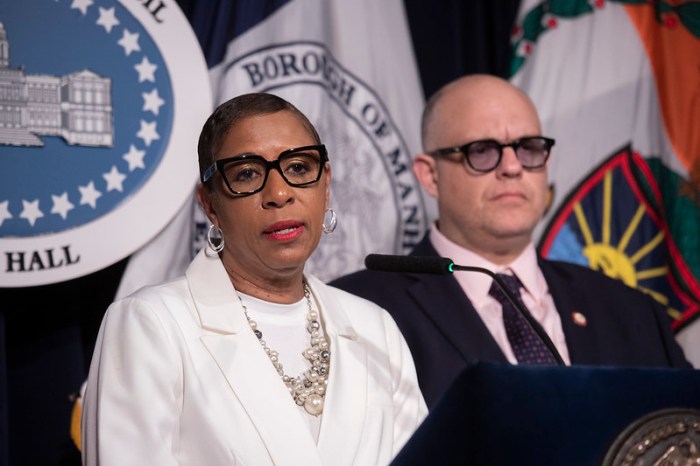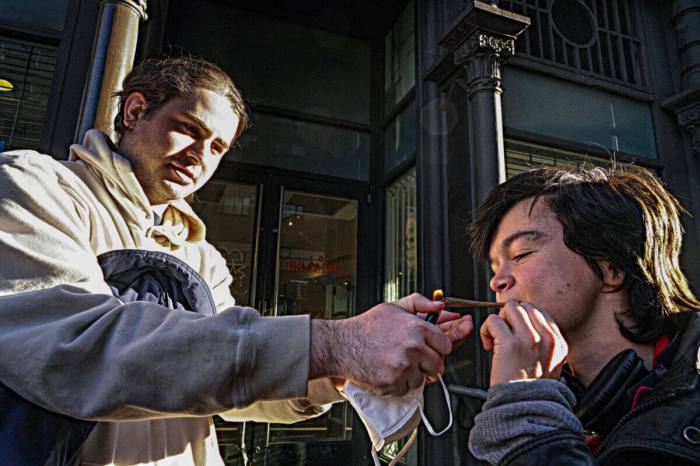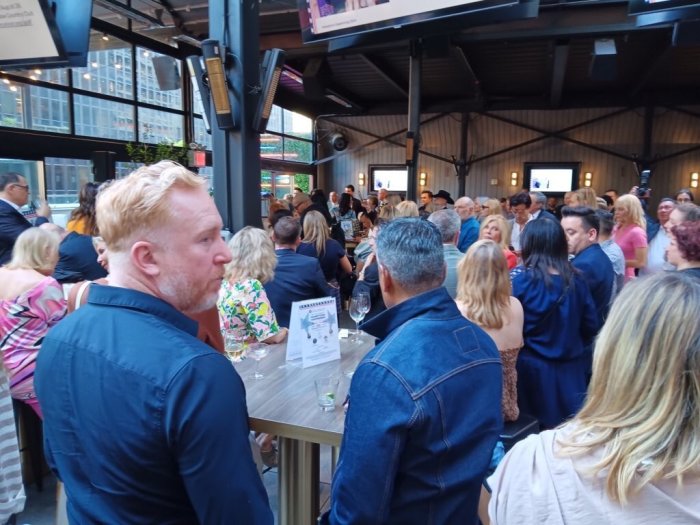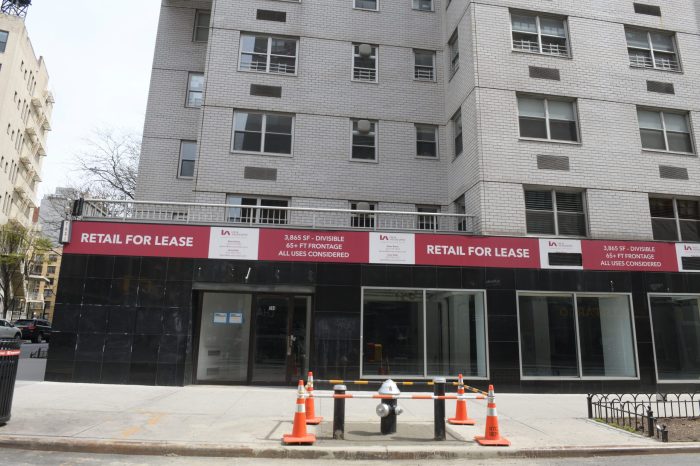COMMUNITY BOARD 2
BY BRAD HOYLMAN | “Community boards are only advisory.” This is ingrained in the minds of probably every one of the 2,950 community board members across the city of New York. But while it is technically true that community boards have no independent authority to order a city agency or official to perform any task, the statement belies the fact that a board’s opinion on issues really does, in fact, matter.
A case in point is applications for new liquor licenses for bars and restaurants, and renewals of existing licenses.
At the crowded Community Board 2 State Liquor Authority town hall on Nov. 29, co-hosted with the Greenwich Village Block Associations, S.L.A. Deputy C.E.O. Michael Jones confirmed that for the last two years, the S.L.A. has followed the recommendations of C.B. 2 “in every instance.” In every instance! That’s a pretty good batting average for a group whose members are all volunteer and which has no inherent power.
C.B. 2 takes our approach toward S.L.A. licenses extremely seriously, as anyone who has attended one of our S.L.A. Committee meetings can tell you. The committee members are among the hardest working on the board. Unlike most community board committees, the S.L.A. Committee holds not one, but two public meetings a month — and these often run very late into the evening. The committee members also spend additional time in discussions with block associations, applicants and other stakeholders as part of their due diligence. Then they have to write the scores of resolutions and prepare them for discussion at the monthly full board meeting, which also can take hours of work.
The goal is to forge community consensus around applications for new bars and restaurants. This is done through negotiations with the applicant and community members that set forth various written stipulations about how the business will be run. For example, will the bar stay open until 2 a.m. or later? Will the applicant agree to install soundproofing? Will a DJ spin records? Agreements on these types of issues are incorporated in the community board’s resolution on the application and, if eventually approved by the State Liquor Authority, become part of the bar or restaurant’s license to do business, called the method of operation.
There is a major shortcoming here, however, that was revealed at C.B. 2’s S.L.A. town hall. In no place can members of the public find out definitively what a bar or restaurant’s method of operation is. Kept up all night by a noisy restaurant on your block, but don’t know if it’s permitted to stay open until 4 a.m.? You’re out of luck. There’s no repository of information that would tell you whether you’re within your rights to complain about a restaurant’s closing time, so the only option is a Freedom of Information Law (FOIL) request — which isn’t much help when you are awake in the wee hours listening to a rowdy crowd on the sidewalk or a thumping bass through the walls.
What’s equally troubling is that the local police precincts don’t have this information, either. So when the police answer a complaint about a noisy bar, there’s no way for the officer to determine whether the establishment is in compliance with its hours of operation, whether it can have a DJ or requires soundproofing.
The State Liquor Authority is working to become more transparent with the details of all licenses. One obvious solution is to make the relevant information available on the S.L.A. Web site. C.B. 2 plans on reaching out to our elected officials to ask their help in speeding up this important improvement.
The board and the community also learned that calling 311 and tracking your complaint isn’t always sufficient to get a licensee to comply with the law. If you have a problem with a bar or restaurant, you should call the local precinct and follow up with them. Even better, pictures with time stamps and hard evidence of violations help to build a record that the S.L.A. and the community board can use to evaluate the establishment when its renewal comes up every three years.
Nobody wants a noisy bar or restaurant next to their home. On the other hand, the vast majority of nightlife operators are good neighbors, and the community board recognizes the positive benefits that this industry brings to our city in cultural and economic activity.
The reason C.B. 2 has had a strong record with the State Liquor Authority is because we work hard, pay attention to the community’s concerns, look at what is happening in every neighborhood, and then try to strike a smart balance of vigilantly protecting the quality of life of our neighbors while not shutting down the opportunity for good bar and restaurant operators to open in our area.
With more complete communication between the board, the S.L.A., the police and the neighbors, we think we can make even better decisions in the future — and have some confidence that the S.L.A. will be listening.
Hoylman is chairperson, Community Board 2




















